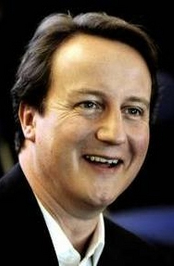TRIPOLI, (Reuters) – Leaders of Britain, France and the United States vowed yesterday to keep up their military campaign in Libya until Muammar Gaddafi leaves power, and rebels said his forces pounded the city of Misrata with missiles.

In a strongly worded, jointly written article published in newspapers on both sides of the Atlantic, British Prime Minister David Cameron, French President Nicolas Sarkozy and U.S. President Barack Obama said leaving Gaddafi in power would be an “unconscionable betrayal” of the Libyan people.
“It is unthinkable that someone who has tried to massacre his own people can play a part in their future government,” the leaders wrote.
“So long as Gaddafi is in power, NATO and its coalition partners must maintain their operations so that civilians remain protected and the pressure on the regime builds,” they said.
“Then a genuine transition from dictatorship to an inclusive constitutional process can really begin, led by a new generation of leaders. For that transition to succeed, Colonel Gaddafi must go, and go for good.”
The reaction from the Gaddafi camp was swift in coming as the Libyan leader’s daughter Aisha told a rally in Tripoli, at a family compound bombed by the Americans in 1986, that demanding her father’s departure was an insult to the Libyan people.
“Talk about Gaddafi stepping down is an insult to all Libyans because Gaddafi is not in Libya, but in the hearts of all Libyans,” she said in a speech broadcast live on Libyan television to mark the 25th anniversary of American strikes on the huge complex, which includes military barracks.
The article by the Western allies appeared at a time when diplomatic efforts have failed to paper over divisions between NATO allies about how intensively they should prosecute the three-week-old air war, and the situation on the ground has shown signs of stalemate.
Washington, which led the campaign in its first week, has since turned over command to NATO and taken a back seat role.
Britain and France complain that other NATO allies have not provided enough fire power to take out Gaddafi’s armour and allow the rebels in control of the east to sweep him from power.
Libyan rebels begged yesterday for more air strikes and said they faced a massacre from government forces, who blasted the besieged city of Misrata with missiles.
NATO planes bombed targets in the capital Tripoli, where state television showed footage of a defiant Gaddafi cruising through the streets in a green safari jacket and sunglasses, pumping his fists and waving from an open-top vehicle.
“MEDIEVAL SIEGE”
Rebels said a hail of rockets fired by besieging forces into a residential district of Misrata, Libya’s third largest city, had killed 23 civilians, mostly women and children.
“Over 200 Grad missiles fell on the port area, including residential neighbourhoods near the port. They shelled this area because the port is Misrata’s only window to the outside world,” a rebel spokesman using the name Ghassan said by telephone.
“The destruction there was huge. I was there and saw for myself,” he said, adding that the port had been shut.
In their article, the U.S., British and French leaders said Misrata was “enduring a medieval siege as Gaddafi tries to strangle its population into submission”.
Aid organisations warn of a humanitarian disaster in the city, the lone major rebel bastion in western Libya, where hundreds of civilians are said to have died in a six-week siege.
NATO foreign ministers in Berlin promised on Thursday in a joint declaration to provide “all necessary resources and maximum operational flexibility” for the air campaign to maintain a “high operational tempo against legitimate targets”.
But several allies rebuffed calls from France and Britain to contribute more to the air attacks, conducted under a United Nations mandate to protect civilians.
British Foreign Secretary William Hague said after the Berlin meeting he was hopeful more countries would contribute to the strike force. “It’s not unreasonable to ask other nations…to make additional contributions,” he said.
